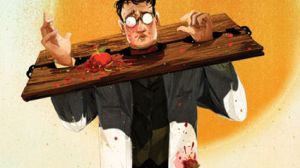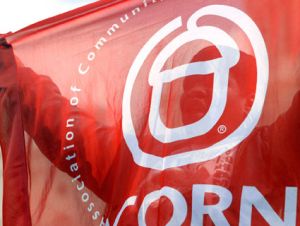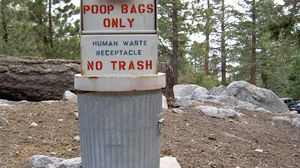
Industry reps who once thought she was "akin to the Antichrist" now can't stop praising the consumer protection chief. What gives?
On her first day running the new Consumer Financial Protection Bureau (CFPB), Elizabeth Warren met with a group of bankers from her home state, Oklahoma. Going into that meeting, Roger Beverage, president of the Oklahoma Bankers Association, feared the havoc Warren, who had developed a reputation as a fierce consumer champion, would soon wreak upon his state's banks. He and his colleagues in the banking industry, he recalls, "had this vision that she was akin to the Antichrist."
Today, Beverage considers himself a Warren convert. He openly praises Warren—who was appointed by the White House to get the bureau up and running but has not been nominated to head it—saying she is "far and away" the most qualified person to become the bureau's permanent director. "Ms. Warren has demonstrated that she is willing to work as hard as possible for the benefit of consumers, consumers' families, and community banks," Beverage says. "She would be an outstanding director, and I have encouraged both of our US senators to look past political rhetoric and look at what the woman has done."
Beverage's reversal reflects a noticeable thaw in relations between Warren and parts of the banking industry. This week, Camden Fine, president and CEO of the influential Independent Community Bankers Association, told a gathering of 1,000 bankers that the odds Obama would nominate Warren were "better than even," later remarking to American Banker that "you would have to look favorably on a [Warren] nomination because clearly she understands our model." Frank Keating, the head of the American Bankers Association, told a reporter that the ABA would support Warren if she were confirmed as CFPB director by the Senate. And Robert Palmer, who heads the Community Bankers Association of Ohio, captured the mood of small banks when he told Bloomberg Businessweek that if Warren "leaves, and the direction changes, we're not going to be very receptive."
See more at: http://motherjones.com/politics/2011/05/elizabeth-warren-cfpb-community-banks


 semester sits in the back of the room on either phone or laptop. They're not taking notes. The good ones are working on assignments for other classes (as if being present in mine causes the information to enter their pores). The bad are giggling at Facebook comments.
semester sits in the back of the room on either phone or laptop. They're not taking notes. The good ones are working on assignments for other classes (as if being present in mine causes the information to enter their pores). The bad are giggling at Facebook comments.








